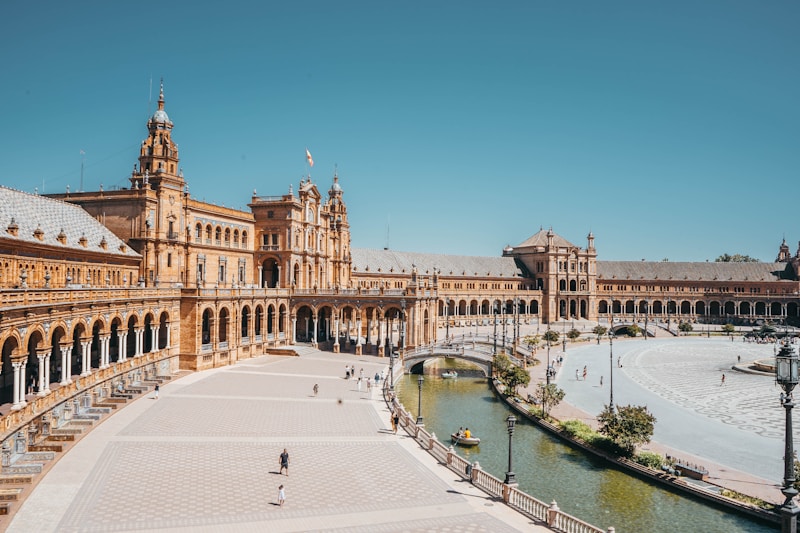9 Questions
What is the primary religion practiced in Spain?
Which country has the highest number of UNESCO World Heritage Sites in the world?
Who were some of the leading Spanish painters during the Golden Age period?
What is the most popular sport in Spain?
What is the official language of Spain?
What is the overarching educative legislation in Spain as of 2020?
What is the role of the 'educación concertada' in Spain's educational system?
What is a popular custom when going out in Spain?
Which regions in Spain have widespread nationalist sentiment?
Summary
Culture of Spain
- Spain's culture is influenced by its Western origin, interaction with other European cultures, Catholic religious tradition, and varied national and regional identities.
- Ancient Rome is the bedrock of Spanish culture, with other ancient peoples such as Greeks, Tartessians, Celts, Iberians, Celtiberians, Phoenicians, and Carthaginians also having some influence.
- Spanish culture before and after the arrival of Muslims was based heavily on Roman heritage, and the primary religion practiced was Catholicism.
- Spain has the third-highest number of UNESCO World Heritage Sites in the world, after Italy and China, with a total of 47.
- Spanish literature includes poetry, prose, and novels written in the Spanish language, including works by Spanish and Latin American writers.
- Spanish painters during the Golden Age period included El Greco, Murillo, Velázquez, and Goya, while Picasso, Dalí, and Tàpies were leading artists in the 20th century.
- Spain's architecture includes megalithic Iberian and Celtic architectures, Roman constructions, Mudéjar style, Gothic period, Renaissance, Baroque period, Spanish colonial architecture, and Neoclassical style, among others.
- Spanish cinema has achieved high marks of recognition for its creative and technical excellence, with filmmakers such as Luis Buñuel and Pedro Almodóvar gaining international recognition.
- Spain is a multilingual country with Spanish being the official language, while other languages may also be official in autonomous communities, such as Catalan/Valencian, Basque, and Galician.
- About 56% of Spaniards identify as belonging to the Roman Catholic religion, and the Semana Santa and patronal festivals are significant Spanish holidays.
- Football/soccer is the most popular sport in Spain, with notable teams including FC Barcelona, Real Madrid, and Atlético Madrid.
- Olive oil is an essential ingredient in Spanish cuisine, and daily meals are often made traditionally by hand with fresh ingredients bought from the local market.
- Tapa, a small snack served with a drink, is a popular custom when going out, and almost every bar serves something edible when a drink is ordered, without charge.Culture, Education, and Nationalism in Spain
Culture:
- Churros and thick hot chocolate are a traditional favorite in Spain, and "churrerías" (stores that serve churros) are common.
- The Spanish cuisine differs from one region to another despite sharing common characteristics.
Education:
- The Spanish educational system follows a highly decentralized model, with most powers over education policies transferred to the autonomous communities.
- Public administrations are responsible for education policies, funding, and expenditure allocation.
- The Ley orgánica para la mejora de la calidad educativa is the overarching educative legislation as of 2020.
- Spain has a low share of students in public centers in both primary (69%) and secondary education (68%) due to the role of the "educación concertada" (privately owned centers funded by public money).
- Bachillerato is usually taken by those aspiring to go to college.
Nationalism:
- Spain has a long history of tension between centralism and nationalism.
- The Basque Country and Catalonia have widespread nationalist sentiment, with many demanding statehood for their respective territories.
- Galicia, Andalusia, Asturias, Navarre, Aragon, Balearic Islands, and Valencia have their own version of nationalism but generally with a smaller percentage of nationalists than in the Basque Country and Catalonia.
- There is some traction in the province of León pushing to separate from Castile and León, possibly together with the provinces of Zamora and Salamanca.
Description
Think you know everything about the culture, education, and nationalism of Spain? Test your knowledge with our quiz! From the influence of ancient Rome to the diverse regional identities, the Spanish culture is rich and varied. Explore the educational system and policies in Spain, and learn about the tensions between centralism and nationalism in different regions. Take this quiz and show off your expertise on all things Spain!


